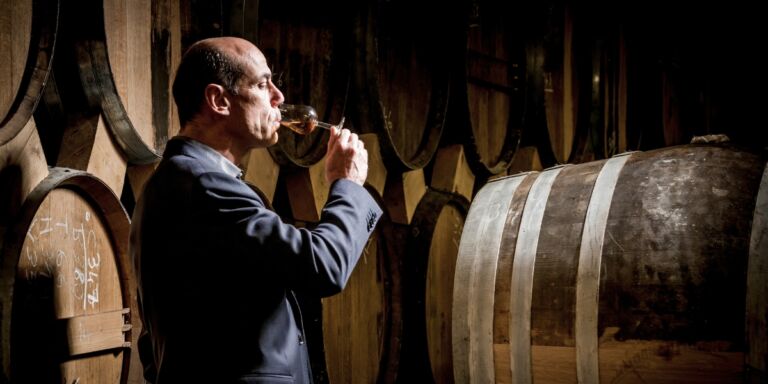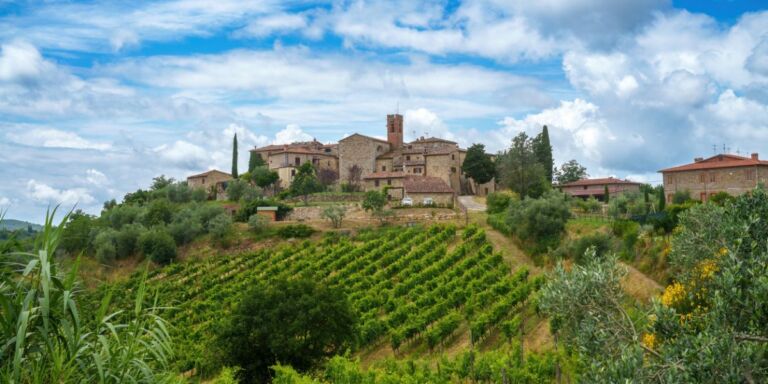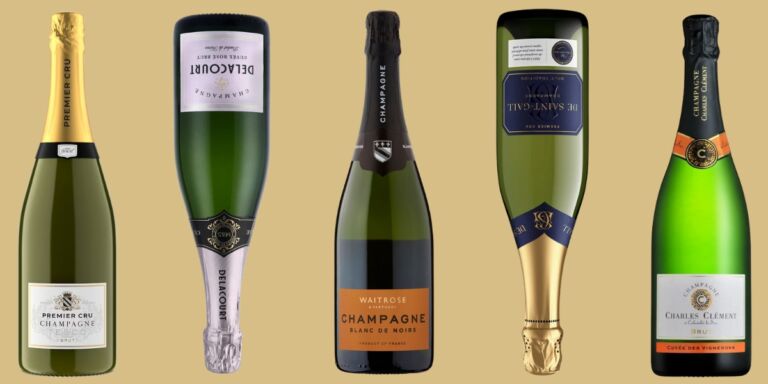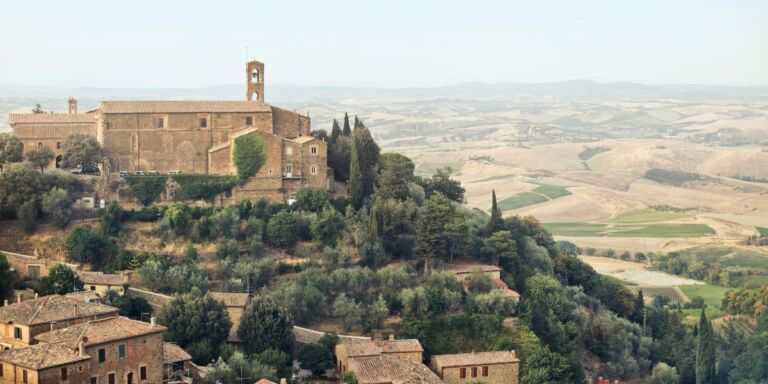Like many a modern-day drink start-up, Real began as a hobby for its founder, rapidly taking over and then spilling out from a spare room at home. But perhaps that’s where the comparisons stop. Because it’s taken just five years for the company to land its own large-scale facility on a Rothschild estate in the English countryside, where its operation is now open for tours and tastings. And, most interestingly, there’s not a drop of alcohol involved.
The Real Drinks Co, the maker of premium sparkling tea packaged and poured from Champagne bottles, has just launched what it is calling the UK’s ‘first standalone non-alcoholic “fermentery”’. The new premises are home to kit that makes 100,000 litres of alcohol-free fermented tea (otherwise known as kombucha) each month, with the potential to scale up to half a million litres – its rapid growth running in parallel with the explosion of the low- and no-alcohol scene.

Opening at the start of October, The Fermentery is down a track branching off from the entrance to the Waddesdon Estate in Buckinghamshire – a ‘neo-French Château’ owned by Lord Rothschild. The wine connection feels intentional. ‘We are like a wine,’ says founder David Begg, an entrepreneur who, among other professional feats, co-founded Tom Dixon design studio. He says his mission has been to create a drink that can pair well with food and also mimic the luxurious feeling of popping the cork on a bottle of fizz.
Now it looks as though the company can add the chic visitor experience of an up-scale winery to the list of its credentials – with Begg emphasising how important it was that the Fermentery wasn’t founded on ‘an industrial estate somewhere.’ With half a million visitors to Waddesdon each year, Real is hoping to scoop up some of that footfall and take them on a sober drink discovery. Experiences run for one-and-a-half hours and include a tea masterclasses – in a wood-clad, Scandi-style tasting room (complete with Tom Dixon lighting, of course) – and a tour taking in the shining steeping and fermenting apparatus.

Begg seems particularly proud of Real’s restaurant affiliations, with bottles pouring at the likes of The Pig hotel group and as a non-alcoholic pairing option at Michelin-Starred The Fat Duck. Supperclubs at The Fermentery will be the brand’s way of showcasing the drink’s versatility when enjoyed with a meal – uniquely, these events will be hosted in a straw-strewn barn appointed with festoon lights.
The one-year plan is ambitious, too. The Real Drinks Co is looking to add a farm shop, entertainment pavilion and even a tea plantation to its plot on the estate – although, it’s careful to point out that plants would be for educational purposes as opposed to part of the production process.

Its loose-leaf teas are instead sourced from Darjeeling to make Royal Flush – a fruity fizz with notes of blackcurrant leaf – and from China’s Zheijiang province to make Dry Dragon – a citrussy drink with nutty undertones derived from its green tea base. After steeping, sugar, water and yeast cultures are added to start an aerobic fermentation that is low and slow (four weeks and three weeks respectively).
They grow their own yeast colonies, and The Real Drinks Co’s head of innovation, Guillermo Alvarez Schulenberg, is so well acquainted with the various cultures and bacteria that form a part of the process, he’s named them after characters from Shakespeare’s A Midsummer Night’s Dream. This helps explain what each bring in terms of flavour and structure to the ferment (from ‘hard to tame’ Puck to ‘earthy’ Oberon). Now, with the additional space, the experimentation can overflow. ‘What we’re doing here is more complicated than what winemakers do,’ claims Begg of some of the secret future brews they have in the works.

Whether it’s a sign of what’s to come for the low and no space or a plucky outsider, one thing is for sure: The Fermentery is a day out to pique the interest of the sober curious – and there’ll be no need for a designated driver.
Tours cost £20. Find more info on The Fermentery here.








